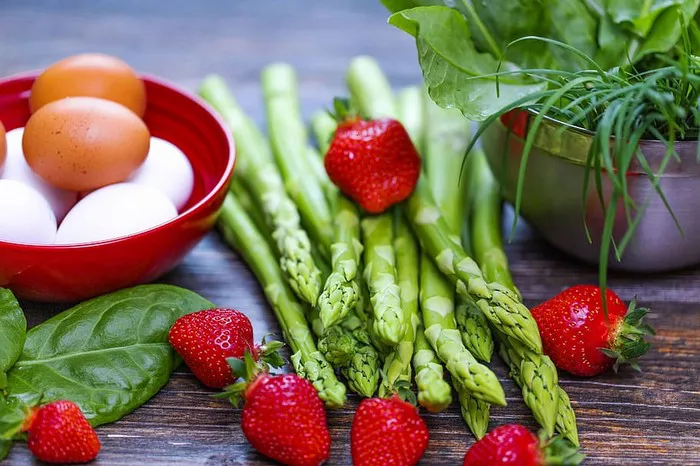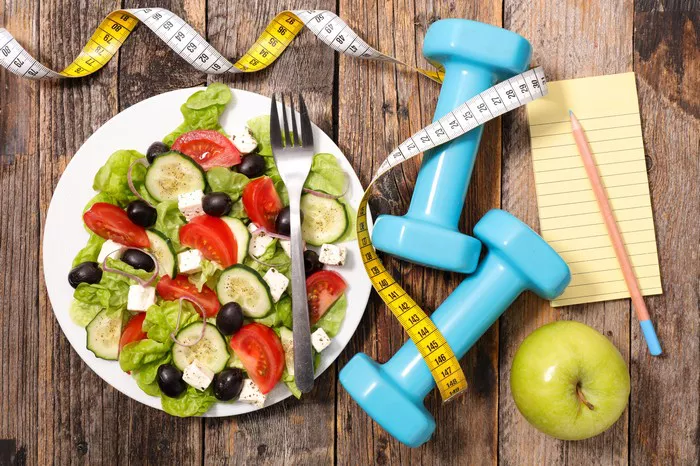Menstruation is a natural part of a woman’s reproductive cycle, and it often comes with its share of discomfort and inconvenience. While there’s no one-size-fits-all solution to making your period more comfortable, one area you can control is your diet. What you eat during menstruation can have a significant impact on how you feel. In this article, we’ll explore what not to eat during menstruation to help you better manage your monthly cycle and alleviate some of the discomfort.
1. Sugary Foods and Drinks:
During menstruation, it’s essential to keep your blood sugar levels stable. Consuming sugary foods and drinks can lead to rapid spikes and crashes in blood sugar, exacerbating mood swings, irritability, and fatigue. Avoid items such as sodas, candies, pastries, and excessive amounts of chocolate.
2. Salty Snacks:
High-sodium foods can lead to water retention and bloating, which is already a common symptom during menstruation. Excessive salt intake can worsen these symptoms. Limit your consumption of chips, salted nuts, and processed foods during your period.
3. Fatty Foods:
Fatty foods, especially those rich in saturated fats, can increase inflammation in the body, leading to more severe cramps and discomfort. Avoid fried foods, fast food, and fatty cuts of meat. Opt for lean proteins like chicken, turkey, and fish.
4. Caffeine:
Caffeine can act as a diuretic, leading to increased urination and potential dehydration. It can also exacerbate anxiety and irritability. Consider reducing your intake of coffee, tea, and energy drinks during menstruation.
5. Dairy Products:
For some women, dairy products can worsen bloating and cramps due to their high-fat content. If you find that dairy makes your symptoms worse, try switching to lactose-free or plant-based alternatives like almond milk or soy milk.
6. Spicy Foods:
Spicy foods can irritate the gastrointestinal tract and potentially lead to more intense cramps or digestive issues during menstruation. If you enjoy spicy cuisine, it’s a good idea to tone it down a bit during your period.
7. Processed Meats:
Processed meats like sausages, bacon, and hot dogs often contain high levels of preservatives and additives that can exacerbate inflammation and bloating. Opt for lean, unprocessed protein sources instead.
8. Alcohol:
Alcohol can disrupt your hormone balance and worsen mood swings. It can also dehydrate your body, making period symptoms more uncomfortable. It’s best to limit alcohol consumption during menstruation.
9. Excessive Dairy:
While dairy products can be a good source of calcium, excessive intake can lead to increased bloating and cramps for some women. Moderation is key when it comes to dairy consumption.
10. Carbonated Beverages:
Carbonated drinks can contribute to bloating and gas, which are already common symptoms during menstruation. Opt for flat or still beverages like water, herbal teas, or diluted fruit juices.
In conclusion, what you eat during menstruation can impact your comfort and overall well-being. While these dietary recommendations may help alleviate some discomfort, it’s essential to remember that every woman’s body is different. Pay attention to how your body reacts to different foods during your period and make adjustments accordingly. Staying hydrated, consuming a balanced diet, and listening to your body are all key factors in managing your menstrual symptoms effectively.
FAQs related to the topic of “What Not to Eat During Menstruation”:
Q1: Why is it important to be mindful of what you eat during menstruation?
During menstruation, your body undergoes hormonal changes, and some foods can exacerbate symptoms like cramps, bloating, and mood swings. Being mindful of your diet can help manage these symptoms and make your period more comfortable.
Q2: Can I still enjoy chocolate during my period?
Yes, you can enjoy chocolate in moderation. Dark chocolate, in particular, is a better choice as it contains less sugar and can satisfy your cravings without causing extreme blood sugar fluctuations.
Q3: How does caffeine affect menstrual symptoms?
Caffeine can worsen anxiety, irritability, and dehydration during menstruation. Reducing caffeine intake, especially from coffee and energy drinks, can help alleviate these issues.
Q4: Are there any specific foods that can help with menstrual cramps?
Certain foods like ginger, turmeric, and leafy greens have anti-inflammatory properties and may help reduce menstrual cramps. Including them in your diet may provide some relief.
Q5: Is it safe to completely avoid dairy products during menstruation?
Avoiding dairy is not necessary for everyone. Some women find that dairy worsens their symptoms, while others don’t experience any adverse effects. It’s best to listen to your body and adjust your dairy consumption accordingly.
Q6: What are some good alternatives to carbonated beverages during menstruation?
Opt for flat or still beverages like water, herbal teas (such as peppermint or ginger tea), or diluted fruit juices. These options are less likely to contribute to bloating and gas.
Q7: How can I tell if a particular food is making my menstrual symptoms worse?
Keep a food diary to track what you eat and how you feel during your period. If you notice a consistent pattern of worsened symptoms after consuming certain foods, it’s a good indicator that those foods may be contributing to your discomfort.
Q8: Can I drink alcohol during my period, and if so, in moderation?
While it’s not forbidden, it’s advisable to limit alcohol consumption during menstruation. Alcohol can disrupt hormonal balance and exacerbate mood swings and dehydration, so moderation is key.
Q9: Are there any specific foods that can help alleviate bloating during menstruation?
Foods rich in potassium, like bananas, and those with diuretic properties, like cucumber and watermelon, may help reduce bloating by encouraging excess fluid elimination.
Q10: Should I consult a healthcare professional about my diet during menstruation?
If you have severe or persistent menstrual symptoms that are significantly impacting your daily life, it’s a good idea to consult with a healthcare provider. They can offer personalized advice and recommendations to address your specific needs.























